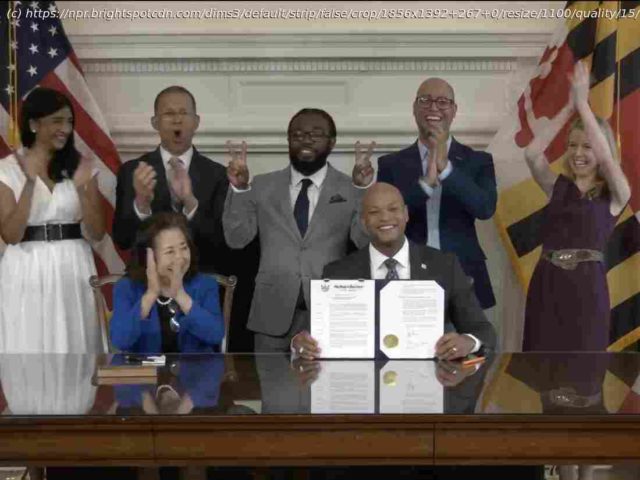Gov. Wes Moore signed an executive order pardoning more than 175,000 cannabis convictions on Monday, making Maryland the latest state to try to undo the harm imposed by criminal records.
Maryland Gov. Wes Moore is absolving people convicted of more than 175,000 cannabis-related crimes, in what the governor called “the most sweeping state level pardon in any state in American history.”
The large-scale absolution comes a year after Maryland legalized recreational marijuana use. The lion’s share of the cases are misdemeanors: More than 150,000 convictions are for possession of cannabis, and more than 18,000 convictions are for possession with intent to use drug paraphernalia.
“We cannot celebrate the benefits of legalization if we do not address the consequences of criminalization,” Moore, a Democrat, said before signing an executive order issuing the pardons on Monday.
The governor’s office did not specify how many people would be affected by the pardons, noting that one person could have multiple eligible convictions. And while the initial tally focuses on cases in the state’s computerized system, people with records that predate the system could also seek to have even decades-old convictions absolved.
The pardons will absolve people of guilt, but they will not result in anyone getting out of jail: when Maryland legalized adult marijuana use and established a cannabis market last year, it halted the types of cases covered by the pardons. But, Moore said, his action looks to ease the cascading social and economic damage wrought by the war on drugs — harm that advocates say has been found to profoundly and disproportionately affect Black and Hispanic communities.
Legalization, Moore said, “doesn’t erase the fact that Black Marylanders were three times more likely to be arrested for cannabis than white Marylanders before legalization,” or undo the lingering effects of a drug conviction.
Nationwide, the ACLU said in 2020 that Black people were 3.
Home
United States
USA — Political Maryland is pardoning 175,000 marijuana convictions. It's part of a trend






